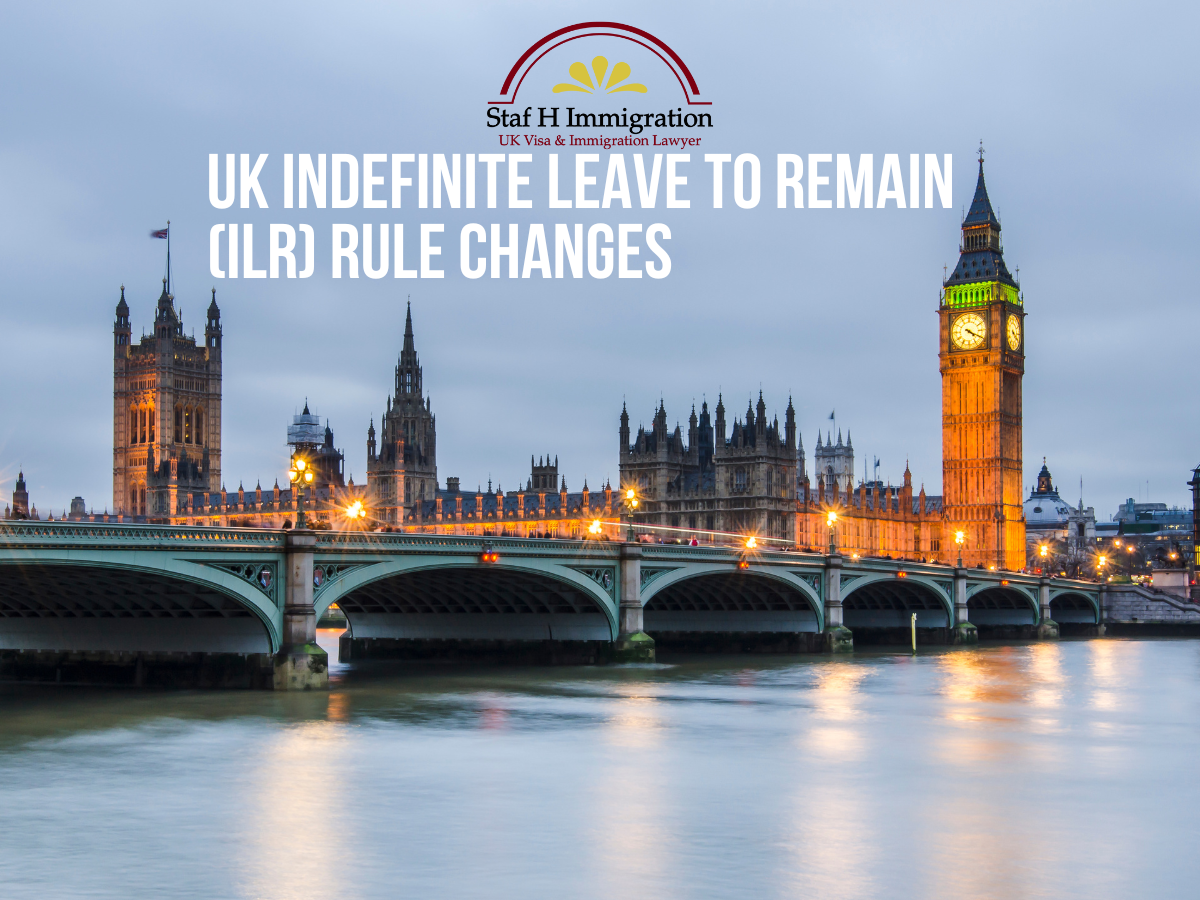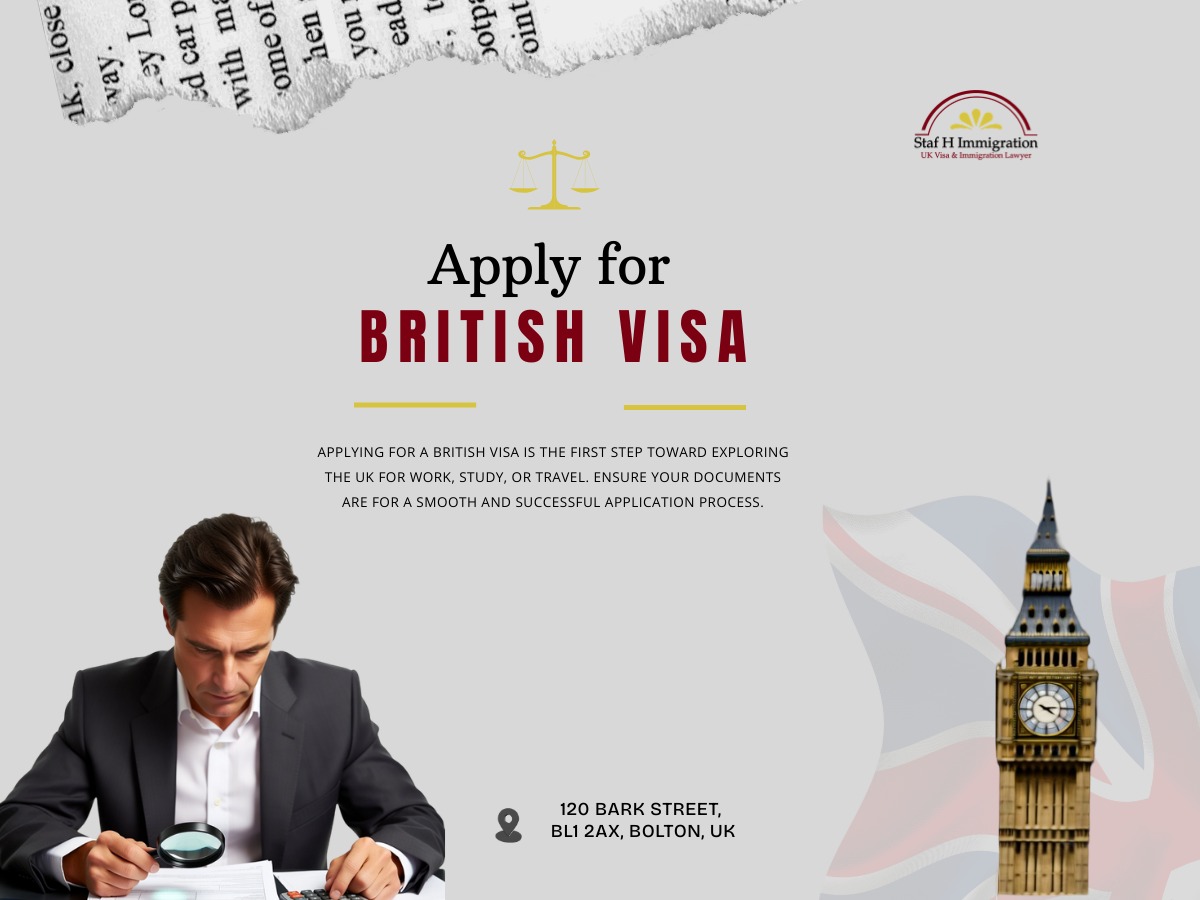The UK’s immigration landscape is undergoing one of its most significant shifts in years. With the Labour government announcing reforms that tighten the route to Indefinite Leave to Remain (ILR) and reshape the pathway to British citizenship, thousands of migrants who call Britain home are wondering how these changes will affect their future.
Home Secretary Shabana Mahmood recently outlined plans that could double the qualifying period for ILR from five to ten years, require higher English proficiency, clean criminal records, and community volunteering as part of the settlement criteria.
While these proposals are still under discussion, they signal a clear policy shift—one that prioritises “contribution to society” as the foundation of permanent residence.
This guide explains what these new ILR rule changes mean, how they could affect you or your family, and why acting now—by applying for ILR or British citizenship early—could be the smartest move you make in 2025.
1. Understanding Indefinite Leave to Remain (ILR)
Indefinite Leave to Remain grants a migrant the right to live, work, and study in the UK permanently, without time restrictions. Once obtained, it’s often the final step before British citizenship.
Currently, most migrants can apply for ILR after five years of continuous lawful residence. During this period, they must have complied with visa conditions, avoided criminal convictions, and demonstrated a basic understanding of the English language and life in the UK (via the Life in the UK test).
With ILR, individuals can:
- Access public healthcare and education without restrictions
- Work or start a business freely
- Leave and re-enter the UK without applying for further visas
- Apply for British citizenship after 12 months (in most categories)
But under the 2025 reforms, many of these privileges may take twice as long to earn and involve stricter qualifying criteria.
2. The Proposed Rule Changes: What We Know So Far
In her Labour Party Conference speech, Shabana Mahmood unveiled an immigration framework based on fairness, contribution, and integration. Key proposals include:
- Doubling the ILR qualifying period
Migrants would need 10 years of lawful residence instead of five before applying for ILR. - Higher English language requirements
Applicants must prove a “high standard” of English—potentially CEFR level B2 or higher—showing full workplace and community fluency. - Proof of social contribution
Applicants would need evidence of active community engagement or volunteering. - Clean criminal record
Any criminal offence, including some minor ones, could delay or disqualify settlement eligibility. - National Insurance contributions & no benefits claims
Migrants would need to show continuous employment or self-employment with tax and NI contributions, while avoiding benefits. - Longer residency proof
The documentation burden would double, as migrants must now provide evidence covering an entire decade.
These proposals aim to make ILR a reward for contribution rather than an automatic right after five years.
3. The Political Backdrop
The Labour government’s strategy draws a dividing line between its “balanced immigration policy” and Reform UK’s harder stance.
Reform UK has proposed abolishing ILR altogether and replacing it with renewable five-year visas, forcing even long-term residents to re-apply repeatedly.
By contrast, Labour argues that it wants to protect pathways for lawful migrants while ensuring the system isn’t abused.
Mahmood’s tone was clear: Britain must remain open and tolerant, but migrants must “earn the right to belong.”
Her remarks—“Contribution to this country will be a condition of living here”—captured the new philosophy shaping UK immigration.
4. Why These Changes Matter
If implemented, these reforms will have far-reaching implications for hundreds of thousands of migrants.
4.1 Longer Wait Times for Settlement
Doubling the qualifying period means many families will spend an extra five years renewing visas, paying Home Office fees, and meeting ongoing requirements before securing permanence.
4.2 Higher Costs
Visa renewals, health surcharge payments, English-test fees, and document verification costs could accumulate to thousands of pounds more over the extended period.
4.3 Greater Uncertainty
More frequent rule changes could expose migrants to fluctuating visa rules, economic conditions, and political rhetoric.
4.4 Barriers to Citizenship
Because British citizenship applications usually follow ILR status, any delay in settlement means a longer path to citizenship rights—voting, passport, and travel benefits.
5. The Rationale Behind the Reforms
From Labour’s viewpoint, the changes are meant to:
- Encourage integration and community engagement.
- Reward those who genuinely contribute to the UK economy.
- Rebuild public confidence in the immigration system.
Mahmood’s speech also reflected a personal dimension. She recalled her parents’ experience as migrants, explaining that acceptance of migrants depends on their visible contribution to local communities.
This “earn-your-place” message seeks to calm public concerns over rising migration numbers while avoiding the extreme rhetoric used by some other parties.
However, immigration experts warn that those already living and working in the UK legally may bear the heaviest burden—facing longer waits and higher costs despite their contribution.
6. How the Changes Could Affect You
For Skilled Workers
If you’re on a Skilled Worker Visa, the current pathway allows you to apply for ILR after five years. Under the proposed rules, you might need ten years of continuous employment. Employers may need to sponsor visa renewals twice as often, increasing administrative and financial load.
For Spouses and Family Members
Partners of British citizens or settled persons currently qualify after five years. If this extends to ten, families could face emotional and financial strain from visa renewals and eligibility uncertainties.
For Students and Graduates
Many international students who transition from study to work routes see ILR as their long-term goal. A 10-year qualifying period could delay their plans significantly, potentially discouraging talented graduates from staying in the UK.
For Entrepreneurs and Innovators
Business owners contributing to the UK economy may face the same delay, even if they have created jobs and paid taxes for years.
For Refugees and Humanitarian Migrants
Refugees typically apply for ILR after five years of protection status. Extending this to ten could postpone their security and integration process, contradicting humanitarian principles if not carefully handled.
7. The Case for Applying Early
If you’re already eligible—or will be soon—it may be wise to apply for ILR or British citizenship now, before these changes take effect.
7.1 Secure Your Status Under Existing Rules
Those who apply before the new regulations come into force should be processed under the current criteria. You can avoid the future 10-year requirement and stricter English or volunteering conditions.
7.2 Financial Savings
Shorter routes mean fewer visa renewals, health surcharge payments, and Home Office fees—saving potentially thousands of pounds.
7.3 Faster Citizenship Access
Once you have ILR, you can apply for British citizenship after one year. Delaying ILR delays your path to a passport and the full rights of UK citizenship.
7.4 Peace of Mind
Immigration rules can change rapidly. Securing your status early eliminates uncertainty and protects your future in the UK.
8. What Counts as “Contribution to Society”?
Mahmood’s speech didn’t specify exactly what forms of community service or volunteering will count toward ILR eligibility, but possible examples include:
- Volunteering with local charities or schools
- Participating in neighbourhood clean-ups or community events
- Coaching youth sports or helping in religious organisations
- Serving as a community liaison or mentor
Immigration lawyers expect that formal proof—letters from charities or organisations—will be required. This adds another administrative step that can be avoided by applying under current rules.
9. English Language and Integration
Under the proposed framework, English fluency is a core measure of integration. The Home Office may soon require migrants to demonstrate a higher language level than today’s standard (usually B1). Those who haven’t yet met these levels may face delays.
Migrants planning to apply within the next 12 months should prepare and complete English tests now, before standards tighten.
10. The Economic Argument
Supporters of the policy claim that migrants who contribute to the tax base and participate in communities help fund public services and strengthen social cohesion.
However, economists warn that delaying settlement for highly skilled workers could hurt the UK’s competitiveness. The uncertainty of a 10-year route might discourage talented professionals from staying long-term or investing in British businesses.
This is why many migration experts recommend securing permanent status as soon as possible—not only for personal security but also to remain professionally competitive.
11. The Long-Term Benefits of Securing ILR or British Citizenship Early
The uncertainty surrounding immigration laws means that early action isn’t just a recommendation—it’s a strategic decision. Here’s why applying for Indefinite Leave to Remain (ILR) or British citizenship early can make a significant difference in the years ahead.
11.1 Freedom from Visa Renewals
Migrants often spend years juggling visa renewals, sponsorship letters, and complex documentation. Once ILR or citizenship is secured, that cycle ends. No more visa fees, renewals, or dependence on employers for sponsorship.
11.2 Stability for Families
Families with children born or raised in the UK gain peace of mind knowing they’re secure. Children can access education without restrictions, and parents can plan long-term careers or property purchases without fear of sudden rule changes.
11.3 Access to Public Benefits
Although most migrants prefer to remain independent, ILR and British citizenship provide access to public benefits and social safety nets in times of hardship. This security can be invaluable during health crises, job loss, or family emergencies.
11.4 Easier International Travel
ILR holders and British citizens can travel in and out of the UK freely. Once you become a British citizen, the UK passport opens visa-free access to over 180 countries, boosting business and personal freedom.
11.5 Voting Rights and Political Participation
British citizenship allows you to vote in local and national elections, empowering you to shape the very policies that affect your future.
11.6 Job and Business Opportunities
Employers often prefer settled or British workers for senior roles due to fewer visa compliance issues. Entrepreneurs can freely start companies, employ staff, and apply for loans without immigration restrictions.
12. How to Prepare for ILR or Citizenship Applications
If you’re planning to apply soon, preparation is key. Here’s what you should start doing now, before stricter ILR rules take effect in 2025:
- Gather Continuous Residence Evidence
- Keep all utility bills, tenancy agreements, bank statements, and pay slips covering the last five years.
- Ensure there are no long absences (over 180 days in any 12-month period).
- Meet English and Life in the UK Test Requirements
- Book and pass both tests early to avoid last-minute rule changes or test backlogs.
- Maintain a Clean Record
- Avoid any criminal or civil issues that could affect your eligibility.
- Keep National Insurance Contributions Updated
- Ensure your employment records and tax payments are consistent and traceable.
- Avoid Benefit Claims
- If you’re on a visa that prohibits access to public funds, stay compliant to protect your application.
- Check Your Immigration Category
- Confirm you’ve spent the required time under a qualifying visa route (e.g., Skilled Worker, Spouse, Innovator, etc.).
- Consult a Legal Professional
- Immigration experts like Staf H Immigration can review your history and guide you on the fastest, safest path to settlement.
13. The Potential Timeline for Change
Although no fixed implementation date has been confirmed, Mahmood’s proposals have already been endorsed at the Labour Party Conference and are expected to move into consultation and legislative stages in 2025.
Once the Home Office formally adopts new criteria, applicants could face:
- Higher application thresholds
- More documentation requirements
- Longer processing times
In short, time is of the essence. Applying before these changes become law can safeguard your eligibility under current, simpler rules.
14. The Emotional and Social Impact
Beyond legalities, these changes touch deeply personal aspects of migrant life. Many have lived, worked, and raised families in Britain for years—contributing to local economies, volunteering in schools, and forming part of the social fabric.
For these individuals, indefinite leave to remain isn’t just paperwork—it’s recognition of belonging.
Delaying or extending the journey to that recognition could leave many feeling excluded, even when they’ve played a full role in British life. That’s why securing your ILR or citizenship now is about more than legality—it’s about ensuring your identity and future are protected.
15. What If You’re Not Yet Eligible?
If you’re still short of the five-year mark or not yet eligible for ILR, there are still steps you can take to prepare:
- Ensure all visa renewals are timely and accurate.
- Start English and Life in the UK preparation early.
- Volunteer or get involved in local community initiatives.
- Keep financial and employment records organised.
- Stay informed about Home Office updates.
By building a strong record of contribution and compliance, you’ll be ready to apply as soon as you qualify—and ideally before the new 10-year rule takes effect.
16. Labour’s Balancing Act: Control vs. Compassion
The Labour government faces a delicate balancing act. On one hand, it must respond to public concerns about immigration and border control. On the other, it must protect Britain’s image as an open, inclusive, and opportunity-driven nation.
Mahmood’s proposals try to achieve both:
- “Earned belonging” for migrants who prove their contribution.
- Firm border enforcement against illegal migration.
- Protection for legal migrants from extreme political proposals like those from Reform UK.
While this balance might appeal to voters, it also risks making life harder for law-abiding residents already settled in the UK. This is why proactive application and expert legal advice are crucial right now.
17. Common Misconceptions About ILR and Citizenship
❌ “I can wait until the rules change and apply under new criteria.”
Waiting may result in higher requirements and longer qualifying periods. Apply now to secure your rights under existing rules.
❌ “Citizenship is the same as ILR.”
No. ILR gives permanent residence but not citizenship rights like voting, holding a UK passport, or full access to benefits.
❌ “Volunteering or language tests aren’t that important.”
Under new proposals, they’ll be essential. Meeting them early strengthens your case.
❌ “My employer or spouse can handle it later.”
Delaying could cause missed deadlines or changes in eligibility. Personal initiative is key.
18. Why Now Is the Time to Act
The UK immigration system evolves fast. What’s available today might be restricted or more expensive tomorrow. Applying early means:
- Avoiding possible rule tightening
- Securing ILR in five years rather than ten
- Saving thousands in visa fees
- Achieving stability for you and your family
With 2025 rule changes on the horizon, the next few months are crucial for anyone nearing eligibility.
19. How Staf H Immigration Can Help
At Staf H Immigration, we understand that every immigration journey is unique. Our experienced advisors assist clients in navigating the complex rules surrounding:
- ILR applications
- British citizenship applications
- Visa renewals and extensions
- Family and spouse visas
- Skilled worker and sponsor licence matters
Our mission is to ensure that lawful migrants who contribute to the UK aren’t left behind by policy shifts. We stay updated with every Home Office consultation and legislative change—so you don’t have to.
We offer:
- Free eligibility assessments
- Personalised documentation checklists
- Guidance on community contribution and volunteering proof
- Legal representation during Home Office reviews
If you’re thinking about securing your future, the time to act is now—before new ILR restrictions come into force.
📞 Contact Staf H Immigration today for expert advice and a fast-track path toward settlement or citizenship.
20. Conclusion
The upcoming UK Indefinite Leave to Remain rule changes in 2025 represent a turning point in British immigration policy. By making “contribution” and “integration” central to settlement, the government hopes to redefine what it means to belong in the UK.
While these reforms may reflect public sentiment, they also introduce longer waiting times, higher standards, and increased costs for lawful migrants.
For individuals and families who have already built their lives here, the smartest response is clear:
Apply for ILR or British citizenship early—under current rules—before the transition begins.
Every year brings new adjustments to the UK’s immigration system. Acting now ensures:
- You lock in today’s requirements
- You protect your family’s stability
- You gain full access to the benefits of British citizenship sooner
As Home Secretary Shabana Mahmood said, “Contribution will be the condition of living here.” But for those who’ve already contributed—working hard, paying taxes, raising families—your place in Britain is already earned.
Now is simply the time to make it official.
Take the Next Step
📍 Contact Staf H Immigration today for guidance on your ILR or British citizenship application.
Our team ensures every form, document, and timeline is handled professionally, helping you secure your future before the new rules take effect.
Don’t wait for 2025—secure your settlement today.





